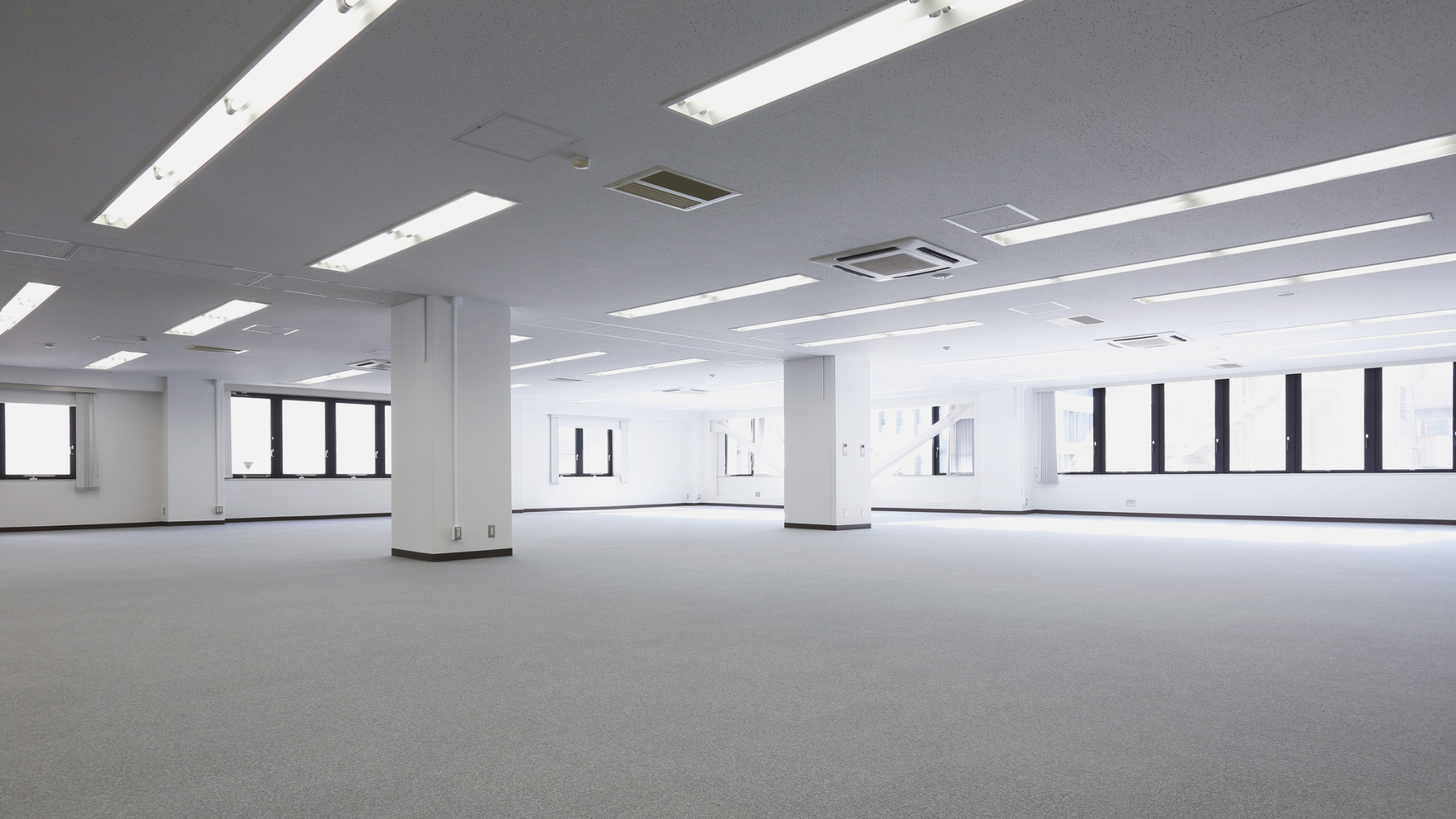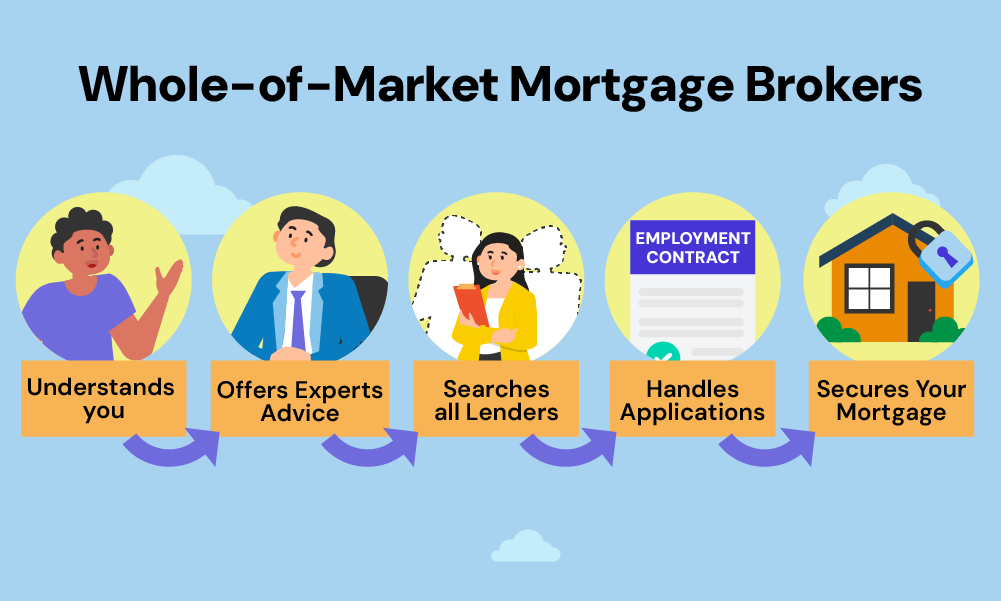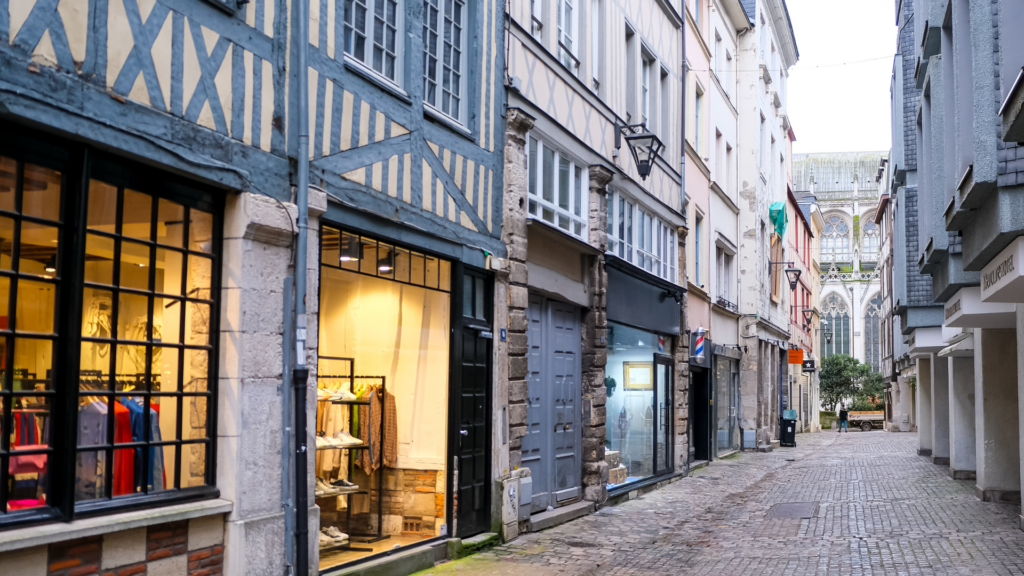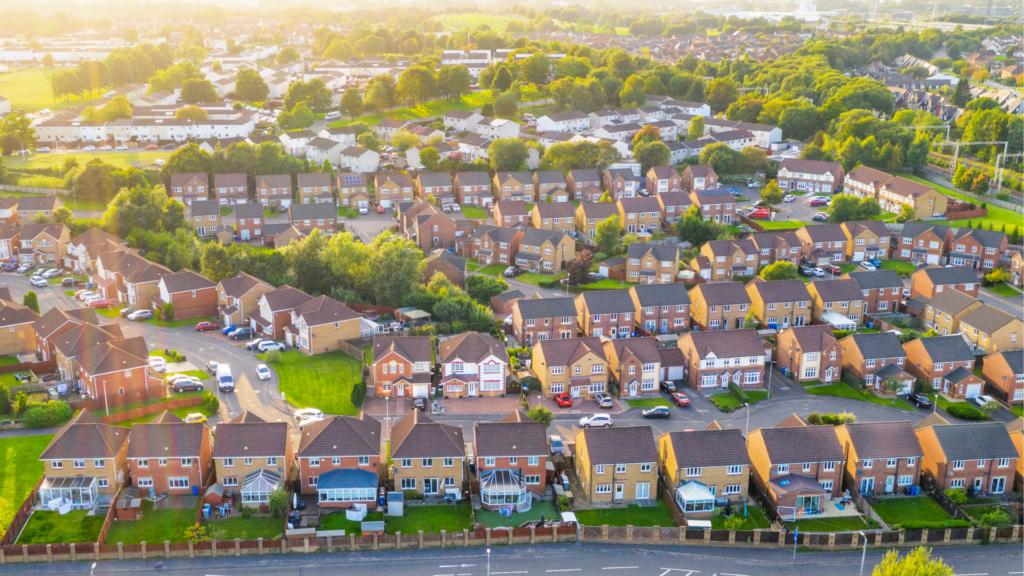- Whatâs The Difference Between Commercial and Residential Mortgages?
- How To Switch From a Commercial to a Residential Mortgage?
- What Are the Eligibility Requirements?
- How Much Does It Cost to Switch?
- What Are The Documents I Need To Prepare?
- How to Choose the Right Lender?
- What Comes After the Mortgage Switch?
- Changing to a Residential Buy to Let Mortgage: Is It Different?
- What Financing Options Are Available?
- Key Takeaways
- The Bottom Line
Can You Change From Commercial Mortgage To Residential?

Since 2015, it’s been easier to switch your mortgage from commercial to residential, all thanks to the UK government’s major changes to the General Permitted Development Order (GPDO).
These rules have simplified changing a building’s use from commercial to residential, offering developers more opportunities to turn unique business spaces into homes.
You might be considering this because you’re keen to convert a business property into a home or you’re looking for a new investment opportunity.
Whatever your reason, you’re likely interested to know the process of converting commercial-to-residential use.
This guide will walk you through the essentials. Let’s begin!
What’s The Difference Between Commercial and Residential Mortgages?
Before we get into the details, let’s clear up the main differences between commercial and residential mortgages.
Commercial mortgages are used to buy properties for business use, like shops, offices, HMOs, bed and breakfasts, restaurants, health facilities, and shopping centres.
On the flip side, residential mortgages are for buying a home or a flat where you plan to live.
The approval criteria vary significantly between the two.
Commercial mortgage lenders look at your business’s income to see if you can repay the loan.
Residential mortgage lenders, on the other hand, consider your personal income and credit score.
This distinction is why you can’t just buy any property for any purpose. The intended use of the property determines the type of mortgage you need and how lenders will assess your application.
Additionally, commercial mortgages usually cost more in interest, and the whole process is different too.
How To Switch From a Commercial to a Residential Mortgage?
Sorted with the basics? Let’s get into the ‘how-to’.
Here’s how you can start this transition:
Step 1 – Check Your Properties’ Eligibility
Not all commercial buildings are created equal.
Some areas have restrictions on converting properties, especially those with historical significance or environmental protections.
Research your specific location to see if your dream conversion is feasible. This might involve checking with your local planning department or scouring online resources.
Step 2 – Identify the Building’s Use Class
Every building has a designated use class that defines its purpose. These classes include:
- Class A: Shops, restaurants, and professional services.
- Class B: Offices and industrial spaces.
- Class C: Residential properties.
- Sui Generis: Properties that don’t fit into standard categories, like cinemas or petrol stations.
To convert a commercial property into a residential one, you will need to apply for a change of use.
This step is separate from applying for planning permission, but both may be required depending on the extent of changes to the property.
Step 3 – Get Planning Permission (If Required)
While some commercial-to-residential conversions fall under permitted development rights (meaning you don’t need full planning permission), it’s always best to check.
If your project involves significant changes, like extending the building or altering its exterior, you’ll likely need to apply for planning permission.
Additionally, even if planning permission isn’t required, you’ll still need prior approval from the local authority. This is particularly important if the property is in a sensitive location, like a flood zone or conservation area.
Check with your local council to see if your project falls under this category or requires full approval.
Step 4 – Budget for the Conversion
Conversion projects often come with unexpected expenses, so it’s crucial to budget carefully.
Aside from the cost of purchasing the property and paying off any outstanding commercial mortgage, you’ll need to consider the following:
- Planning permission fees (£80-£120)
- Prior approval fees (£200)
- Stamp duty
- Legal fees
- Renovation costs (including soundproofing, thermal insulation, and other upgrades required to meet residential standards)
It’s a good idea to set aside extra funds for unforeseen expenses, which are common in conversion projects.
Step 5 – Secure Financing
Depending on your financial situation and the project scope, you may need to explore various financing options, including:
- Development finance for larger renovation projects.
- Bridging loans for short-term financing needs.
- Self-build mortgages if you plan on doing significant construction work.
Consult with a qualified mortgage broker who specialises in commercial-to-residential conversions to find the best financing option for your project.
Step 6 – Find the Right Property
Not all commercial buildings can be easily converted, so it’s key to assess each one carefully based on your plans.
Think about:
- Rental yield potential if you plan to rent out the property.
- Resale value if you intend to sell after conversion.
- Location: Prime locations near transport links or city centres may offer better investment opportunities.
Get quotes from local builders to estimate renovation costs and ensure your profit expectations are realistic.
Step 7 – Prepare Your Documents
Before proceeding with the mortgage application, gather the following documents:
- Proof of identity (e.g., passport, driving licence)
- Proof of income (recent payslips or tax returns)
- Property valuation report
- Planning permission or prior approval documentation
- A detailed budget and renovation plan
- Information about your current commercial mortgage, if applicable
Having these documents ready will speed up the application process.
Step 8 – Apply for the Mortgage
Once your documents are in order, your next step is to apply for a residential mortgage.
Work closely with a good mortgage broker to:
- Find a lender that supports commercial-to-residential conversions.
- Ensure the best possible rates and terms for your new mortgage.
Your broker will guide you through the application, ensuring all necessary details are provided to the lender.
Step 9 – Finalise the Switch
Once your mortgage application is approved, you can proceed with finalising the switch. This includes:
- Settling your commercial mortgage (if applicable).
- Setting up your new residential mortgage.
- Ensuring that the property complies with residential building codes, including any inspections required by local authorities.
What Are the Eligibility Requirements?
To switch your mortgage, both you and the property need to meet certain eligibility criteria. Lenders will look at:
- Your financial health (income, credit score, and existing debts)
- The property’s current use class and suitability for residential conversion
- Whether planning permission or prior approval is needed for the conversion
How Much Does It Cost to Switch?
Switching from a commercial to a residential mortgage comes with several costs. Residential mortgages usually have lower interest rates, but it’s the extra costs that might catch you out.
Here’s a simple breakdown:
- Legal fees: £1,000 – £3,000
- Planning permission: £80 – £500 (depending on your project and location)
- Prior approval fees: Around £200
- Stamp duty: Varies by property value, could range from £2,000 to £10,000 or more for higher-value homes
- Renovation costs: £25,000 – £100,000 (e.g., soundproofing, insulation, electrical, and plumbing work)
- Surveyor fees: £500 – £1,500
- Architect fees (if needed): £2,000 – £5,000
It’s also smart to have a backup fund of 10% to 20% of your total budget to cover any unexpected expenses.
Planning your finances well in advance will help keep the process smoother and allow you to focus on what’s next without worrying about surprise costs.
What Are The Documents I Need To Prepare?
Getting ready to switch your mortgage from commercial to residential? Here’s a list of documents you’ll need to gather:
- Proof of Identity: Passport or driving licence to confirm your identity.
- Proof of Address: Recent utility bills or council tax statements.
- Income Verification: Recent payslips or tax returns if you’re self-employed.
- Bank Statements: Usually the last three months to show your income and outgoings.
- Property Details: Information on the property you’re switching the mortgage for, including current use and condition.
- Planning Permission: If applicable, any permissions granted for changing the property’s use.
- Property Valuation: A recent valuation report showing the property’s market value.
- Detailed Budget for Renovations: If you’re planning to convert the property, an outline of your budget for the work.
- Existing Mortgage Details: Information about your current commercial mortgage, including the remaining balance and terms.
Having these documents at hand will make the process smoother and help your mortgage broker or lender understand your situation better.
How to Choose the Right Lender?
Look for lenders who specialise in this area—they’ll better understand your situation and offer the right options.
Using a whole-of-market mortgage broker can also be a big help. They have access to many lenders and can quickly find the ones offering the best terms for your needs.
Brokers can make the process smoother, and their connections may get you deals you wouldn’t find on your own.
Need help? Get in touch. We’ll arrange a free, no-obligation consultation with a good mortgage broker experience in switching commercial to a residential mortgage.

What Comes After the Mortgage Switch?
After the mortgage switch, ensure that:
- Your commercial mortgage is fully paid off and the finalise the new residential mortgage.
- The property complies with residential building regulations
- You’ve completed any required inspections or certifications
Now, you can decide whether to live in the property, rent it out, or sell it.
Changing to a Residential Buy to Let Mortgage: Is It Different?
Yes, switching to a buy-to-let mortgage is different.
You’re not just changing the mortgage type—you also need to think about the property’s potential as a rental.
Before making the switch, it’s important to research the rental market to see how much demand there is and what rental income you could earn.
You’ll also need to calculate the rental yield, which shows the annual rental income as a percentage of the property’s value. This helps you see if the investment makes sense.
Lenders will focus on the expected rental income and usually require it to cover at least 125% of the mortgage payments.
A buy-to-let mortgage is a good option if you plan to rent out the property, but make sure it fits your investment goals and financial situation.
What Financing Options Are Available?
When switching from a commercial to a residential mortgage, you have a few choices:
- Remortgaging. You can renegotiate your current mortgage terms to fit your needs as a residential property owner.
- New residential mortgage. This is a good option if you’re moving into the property or planning to sell it.
- Bridging loans. A short-term solution if you need to quickly change the property’s use before securing longer-term financing.
- Self-build mortgages. Funds are released in stages as the renovation progresses, making this suitable for extensive conversions. Lenders typically require a detailed plan of the works.
- Development finance. Offers short-term funding for large-scale projects, covering most of the purchase and renovation costs. It’s repaid after completion through sale or refinancing.
The best option depends on your situation—how quickly you need the money, the state of your current mortgage, and your future plans for the property.
Each option has its benefits and drawbacks, so consider them carefully.
Key Takeaways
- Switching from a commercial to residential mortgage has been easier since 2015 due to regulatory changes.
- Commercial mortgages are based on business income, while residential mortgages focus on personal income and credit score.
- Key steps include checking property eligibility, identifying use class, securing planning permission, budgeting, and applying for a new mortgage.
- Costs can range from £1,000 to £100,000+ and include legal fees, planning fees, stamp duty, and renovation expenses.
- Required documents include proof of identity, income, property valuation, and renovation plans.
- If renting out the property, a buy-to-let mortgage requires rental income to cover at least 125% of repayments.
- Financing options include remortgaging, bridging loans, self-build mortgages, and development finance.
The Bottom Line
Switching from a commercial to a residential mortgage is a big decision that needs careful planning and understanding of the process.
From financing options to planning permissions and choosing the right lender, every step is important.
Getting professional advice can make a huge difference, helping you through each stage and ensuring you make informed choices.
Specialised mortgage brokers can be especially helpful. They have the expertise to find the best deal suited to your situation.
If you’re thinking about making the switch, don’t do it alone. Speak to a mortgage broker who can give you the personalised advice you need for a smooth and successful transition.
If you want to save time and avoid stress, contact us. We’ll connect you with a reliable broker who can help with your mortgage needs.
Get Matched With Your Dream Mortgage Advisor...

Frequently asked questions
How easy is it to convert a pub to residential?
Converting a pub into a home is possible but can be tricky.
You’ll need to apply for a change of use from commercial to residential, and this might require planning permission depending on the changes you plan.
If the pub is a listed building or in a conservation area, the process can be more complicated.
Some local councils may also want to keep certain pubs as community assets, so there could be extra restrictions.
It’s a good idea to check with your local planning authority and work with experienced professionals like architects and builders to help make things easier.
Can you turn a hotel into a house?
Yes, you can convert a hotel into a house, but it depends on its current use and local planning rules.
You’ll need to apply for a change of use and might need planning permission, especially if you’re making structural changes.
Hotels often require major renovations to meet residential standards, like adding kitchens or redesigning rooms. The size and location of the hotel could also mean extra regulations.
It’s best to check with your local council and hire a professional with experience in property conversions.




